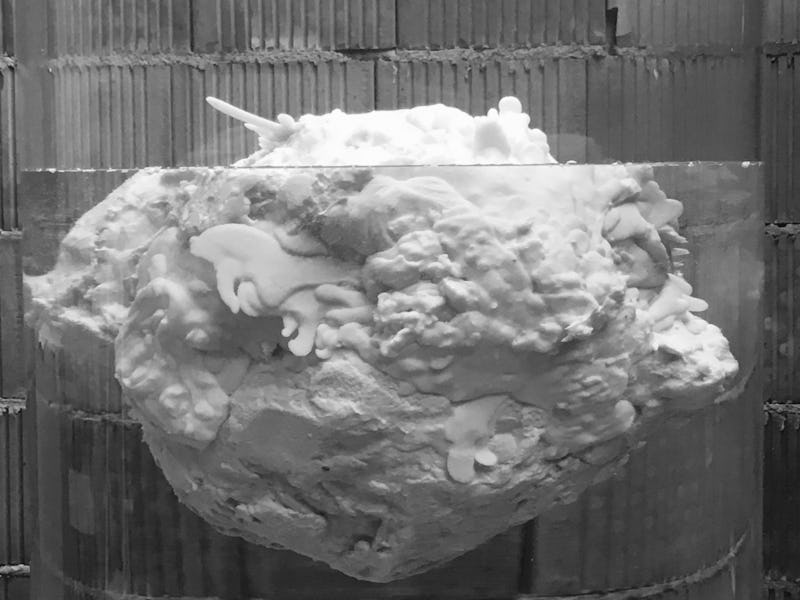Sewer-Clogging 'Monster' Fatbergs Could Fuel Buses, Say Scientists
The "evil, gut-wrenching, rancid blob' is being put to good use.

London’s pipes are struggling with a problem orders of magnitude greater than your average plugged-up toilet: sewer-clogging fatbergs. They’re like icebergs made out of fat, get it? On Wednesday, the Telegraph reported that at least four rock-hard fatbergs made of congealed fat, diapers, and wet wipes are clogging sewers in London’s West End. For weeks, engineers have waged war with the biggest one, measuring over 850 feet long and weighing over 143 tons.
As gross and impossibly huge as the fatbergs may seem, some scientists think they can provide the city with a surprising benefit: biodiesel made from the fat. Scientists at Thames Water, the private utility company responsible for London’s water supply, are working to convert these disgusting masses of sewer fat into a clean source of fuel.
A statement from Thames Water released in September revealed their plans to convert the 143-ton “evil, gut-wrenching, rancid blob” into around 10,000 liters of biodiesel after it’s carefully removed from the Victorian-era sewer. This fuel, the company claims, can “create enough environmentally-friendly energy to power 350 double-decker Routemaster buses for a day.”
It’s like the liposuction fat soap in Fight Club, but for energy.
Fatbergs like this one but much much much bigger are clogging London's Victorian-era sewers. But soon they could power city buses.
Biodiesel, which is produced from waste products and releases less carbon dioxide than conventional gasoline, is considered a cleaner alternative to fossil fuel, justifying the unconventional efforts of the Thames Water scientists.
“We have a problem with fatbergs, both in sewer networks and at our sewage treatment works. Previously, we’ve either extracted the fatberg out of the pipes and sent it to landfill, or broken it down and put it back through the sewage treatment process,” said Thames Water waste network manager Alex Saunders in a release.
“Even though they are our worst enemy, and we want them dead completely, bringing fatbergs back to life when we do find them in the form of biodiesel is a far better solution for everyone.”
The process involves breaking up the fatberg with high-powered jets, then taking chunks of it to a specialist plants where its solid contents — diapers, baby wipes, sanitary products, and other human waste — will be fished out. The remaining fat, oil, and grease will be processed into biofuel with the help of Argent Energy, a leading biofuel producer in the UK that already helps power bus fleets.
Still, the process won’t be easy. “It’s a total monster and taking a lot of manpower and machinery to remove as it’s set hard,” Thames Water’s head of waste networks Matt Rimmer told The Telegraph in September. “It’s basically like trying to break up concrete.”
Giant globs of fat filled with tampons, diapers, wet wipes, and all sorts of other crap are clogging London's sewers.